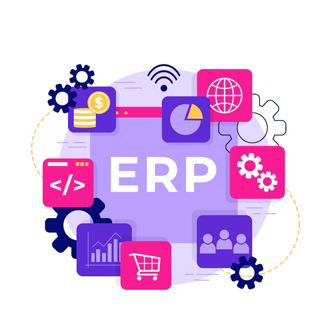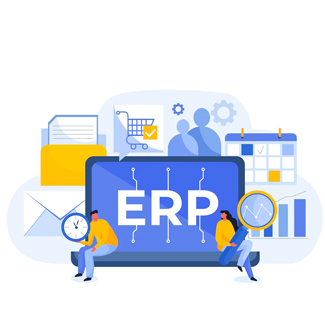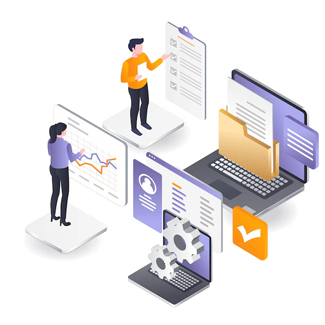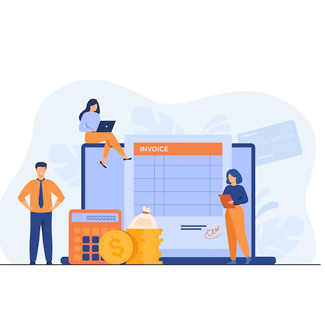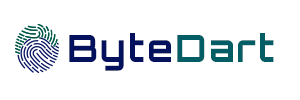
ERP Softwares
Enterprise Resource Planning (ERP) is a business process management software that optimises an organization's processes by providing a system of integrated and centralised applications that help manage and automate a wide range of business operations such as accounting, human resources, sales, and inventory management.
This is how we currently describe Enterprise Resource Planning, but it wasn't always so. Previously, "ERP" was mostly associated with industrial software. In other words, the ERP systems we see today are a progression of what was originally MRP (MRP ii). ERP has come a long way since then and, for all intents and purposes, should be considered global business management software. ERP systems are notable for their ability to connect numerous corporate operations and facilitate data flow between them. This removes duplicate data and enhances the data quality of an organization's information system. Organizations benefit from enhanced productivity, profitability, and time savings with a consolidated database, thanks to ERP.
There are numerous ERP systems on the market today. They are unquestionably essential to the administration of organisations, corporations, and firms of all sizes and industries all over the world. Enterprise Resource Planning software now has more features than ever before, and it is getting more sophisticated and capable of meeting the needs of today's enterprises.

